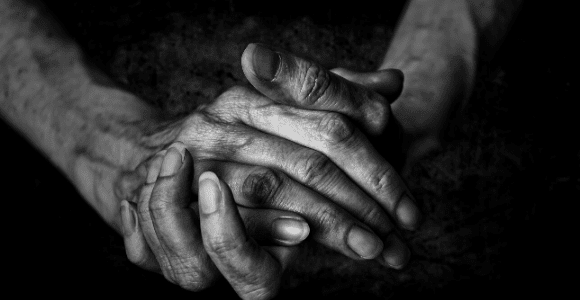Welcome readers! Please subscribe through the buttons on the right if you enjoy this post.
(Read this series from its beginning here.)

What does this mean for us today? Jesus’ teachings still invite us to experience community where, rather than exercising power over others, we—together—learn how to listen to one another. And instead of lording power or position over each other, we learn what it means and what it looks like to care for each other.
I am convinced that, personally and systemically, our hope as a species is in discovering more effective ways of taking care of one another, not more efficient ways of dominating one another. Today, a few people have solved the human dilemma of their own survival at the expense of others. In so doing they’ve lost a part of their humanity. They’ve lost touch with reality that, whether we live like it or not, we are part of one another. We are all connected. What impacts one, directly and indirectly, impacts us all.
The question I wrestle with most when considering communities like those I just described is how do we protect certain community members from others who may use their strength to overpower, take advantage of, and do harm to those vulnerable within the community? Perhaps you wonder this too. Humanity is not perfect. Humanity is messy. How do we handle that messiness in non-authoritarian ways that mitigate or prevent harm?
I’m reminded of the work of Peter Kropotkin, a Russian activist, writer, revolutionary, and philosopher who lived in the late 19th and early 20th Century. In his book Mutual Aid, he wrote:
“While [Darwin] was chiefly using the term [survival of the fittest] in its narrow sense for his own special purpose, he warned his followers against committing the error (which he seems once to have committed himself) of overrating its narrow meaning. In The Descent of Man he gave some powerful pages to illustrate its proper, wide sense. He pointed out how, in numberless animal societies, the struggle between separate individuals for the means of existence disappears, how struggle is replaced by co-operation, and how that substitution results in the development of intellectual and moral faculties which secure to the species the best conditions for survival. He intimated that in such cases the fittest are not the physically strongest, nor the cunningest, but those who learn to combine so as mutually to support each other, strong and weak alike, for the welfare of the community. ‘Those communities,’ he wrote, ‘which included the greatest number of the most sympathetic members would flourish best, and rear the greatest number of offspring’ (2nd edit., p. 163). The term, which originated from the narrow Malthusian conception of competition between each and all, thus lost its narrowness in the mind of one who knew Nature.”
In Kropotkin’s model, the fittest communities are not those where the strong eat the weak, but those where those who have the ability to take care of those who need their care do so.
From the US government’s failed responses to COVID-19 to our country’s continued refusal to listen to those most deeply harmed by our systemic racial injustice and militarized policing, the past few months of life here in the U.S. have revealed how desperately we are in need of a raised consciousness. We need to recognize the truth that healthy communities are not competitive communities of winners and losers where the disparities between the haves and have-nots continue to expand. Instead, they are communities of care and cooperation where we have learned how to ensure those presently made “least” are centered, cared for, and prioritized.
As Mathew’s gospel reminds us, “The King will reply, ‘Truly I tell you, whatever you did for one of the least of these brothers and sisters of mine, you did for me.’ He will reply, ‘Truly I tell you, whatever you did not do for one of the least of these, you did not do for me’” (Matthew 25:40, 45).
I long for the day when we don’t treat others with dignity, care and respect because we see Jesus in them, although that would be a good start, but we do it simply because we see them as fellow humans, fellow travelers, fellow inhabitants in the short period of life we have been given.
Peter Maurin wrote in The Catholic Worker in August 1936:
“I want a change, and a radical change. I want a change from an acquisitive society to a functional society, from a society of go-getters to a society of go-givers.”
I want to believe a world like that is possible.
At the very minimum, I believe it’s worth working toward.
And to all those who are already working toward a world that looks like this, may future generations look back at you and be grateful. May our work today, building off the work of those who have come before us not be in vain.
And may a just future come, in the words of Matthew’s gospel, “on earth as it is in heaven” (Matthew 6:10).













